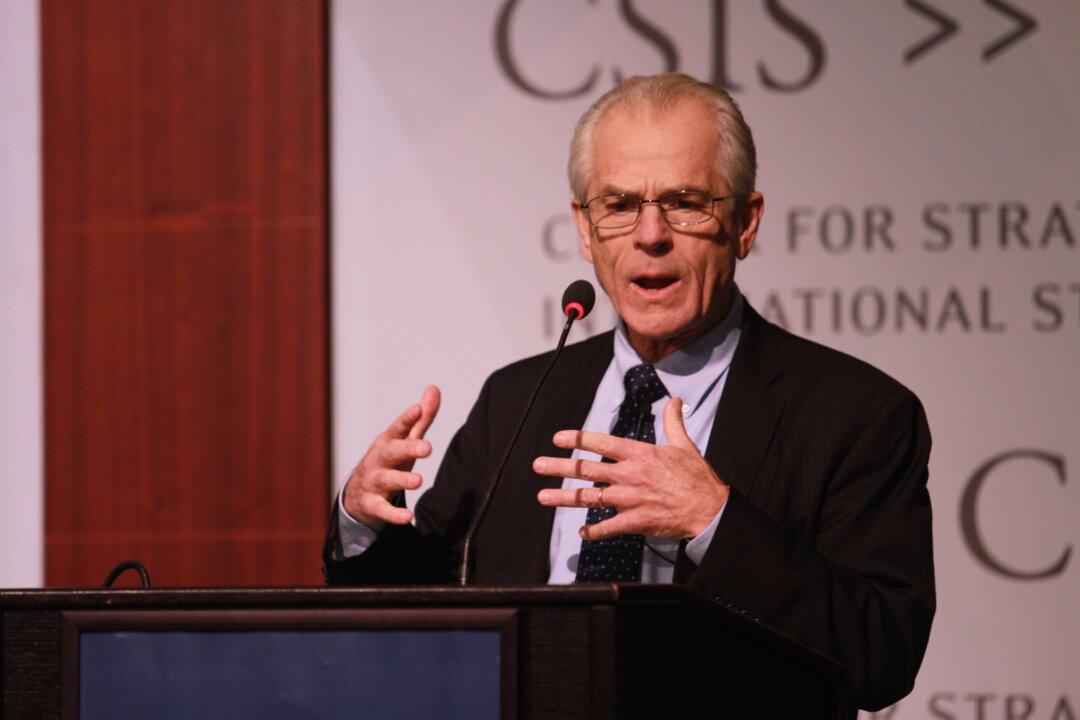WASHINGTON—White House trade adviser Peter Navarro lashed out at Wall Street executives and globalists, calling them “unregistered foreign agents” who are pressuring President Donald Trump into ending the trade dispute with China.
“The president of the United States does not need shuttle diplomacy,” Navarro said on Nov. 9 in a speech at the Center for Strategic and International Studies, a Washington think tank.





